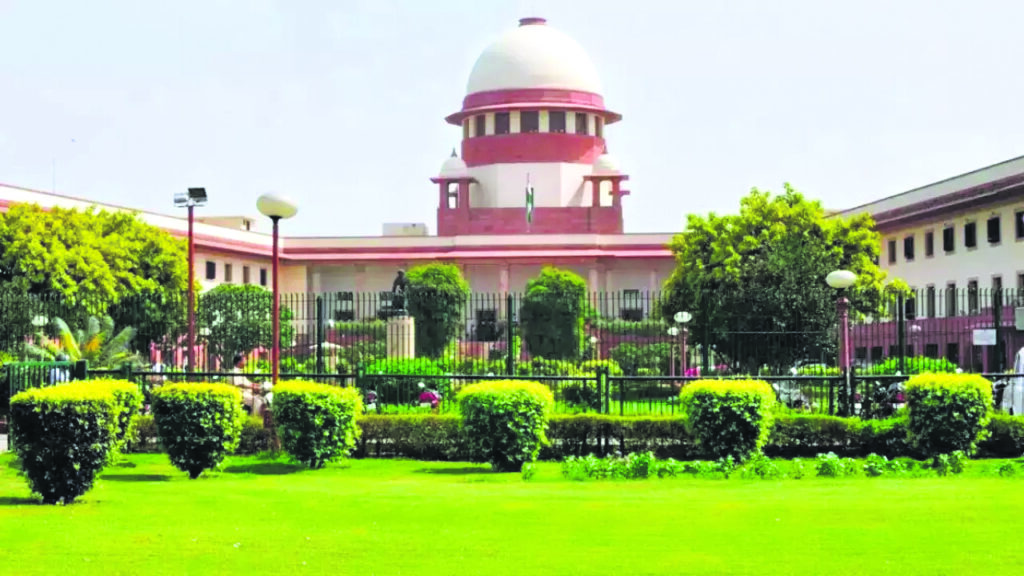Aarohi Girish Dhumale
On 17th October, 2024, the Supreme Court upheld the constitutional validity of Section 6A of The Citizenship Act, 1955.
A five-judge bench comprising the Chief Justice D.Y. Chandrachud, Justice Surya Kant, Justice J. B. Pardiwala, Justice M. M. Sundresh, and Justice Manoj Mishra gave this decision by a majority verdict of 4:1.
Section 6A provides the criteria for recognizing migrants in Assam as Indian citizens or expelling them based on their migration dates. It stipulates that individuals who arrived in Assam between January 1, 1966, and March 25, 1971, from specific territories, including Bangladesh, and have been residents of Assam since then, must register under Section 18 to obtain citizenship. This provision sets March 25, 1971, as the cut-off date for granting citizenship to Bangladeshi migrants in Assam.
People living in Assam during these fixed dates are eligible to apply for citizenship according to this act.
Chief Justice DY Chandrachud and four other justices upheld the validity of Section 6A, with one dissenting opinion. Despite this, the majority found the section to be constitutionally valid.
Section 6A was incorporated into the Citizenship Act as a special measure to address the citizenship of individuals covered by the Assam Accord.
With the Supreme Court affirming its validity, the cut-off date will continue to serve as the basis for granting citizenship to those arriving in Assam from Bangladesh and other countries.
History Of Section 6A:
The Bangladesh Liberation War, which resulted in Bangladesh’s independence from Pakistan, saw a significant influx of migrants into India. Migration to India had begun even before Bangladesh officially gained independence from East Pakistan in 1971.
On March 19, 1972, India and Bangladesh signed a treaty called the India-Bangladesh Treaty of Friendship, Cooperation and Peace to strengthen relations between both nations.
The number of illegal immigrants from Bangladesh kept on increasing. This led to a rise in social tensions in Assam. There were fears that illegal immigrants would affect political representation and electoral outcomes, undermining the rights of local residents. Concerns about the preservation of the cultural and linguistic identity of the indigenous Assamese population, strain local resources and impact employment opportunities for native residents led to agitation by the youth of Assam, whose future was directly threatened by the massive influx of illegal immigrants.
To tackle this situation, in 1985, the Indian government, under then-Prime Minister Rajiv Gandhi, collaborated with the All Assam Students Union (AASU) and the All Assam Gana Sangram Parishad (AAGSP) to negotiate and draft the Assam Accord, which established categories of immigrants. Consequently, Section 6A was added to the Act in December 1985 to support the implementation of the Assam Accord.
The provision states that individuals who arrived in Assam on or after January 1, 1966, but before March 25, 1971, from designated territories, including Bangladesh, and have since been residents of Assam, are required to register under Section 18 to obtain citizenship. As a result, March 25, 1971, is established as the cut-off date for granting citizenship to Bangladeshi migrants in Assam.
Petitioners, including the President of Assam Public Works, the Assam Sanmilita Mahasangha, and several others, challenged the provision, arguing that it unfairly targets Assam and has led to mass immigration. They contended that the demographic makeup of Assam has changed significantly due to the immediate citizenship granted to immigrants who assert they arrived before the March 1971 cut-off date. The petitioners first contested Section 6A in 2012, claiming it is discriminatory, arbitrary, and illegal for establishing different cut-off dates for regularizing illegal migrants in Assam compared to the rest of India.
Section 6 of the Constitution states that any person who migrated from Pakistan before July 19, 1948, is entitled to citizenship. The petitioners argued that Section 6A indirectly amends this constitutional provision, as Bangladesh was still part of Pakistan on January 1, 1966. They asserted that introducing a new cut-off date for granting citizenship would violate the established cut-off date for immigrants entering India from Pakistan.
Justice Surya Kant was the only dissenting judge. All the other judges concurred on the point that the Section 6A of the Citizenship Act, 1955 is valid.
Case Name: Assam Public Works and ors v. Union of India and ors.
Case Number: WP (C) 274/2009
Bench: Chief Justice Dr. D. Y. Chandrachud, Justice Surya Kant, Justice J. B. Pardiwala, Justice M. M. Sundresh, and Justice Manoj Mishra

